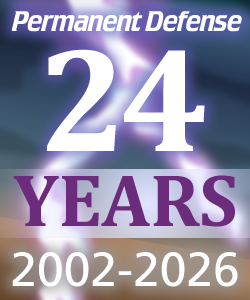November 16th, 2009
Eyman revises history again: I-776 wasn’t “overwhelmingly” approved by voters
Rethinking and ReframingStatements & Advisories
The 2009 election may be over, but that hasn’t stopped initiative pitchman Tim Eyman from distorting the truth as he appeals to his followers to compensate him for failure.
In his latest missive, copied to the media, Eyman writes:
Over the past 11 years, we’ve sponsored 4 initiatives to reduce car tab taxes and voters got to vote on two of them: both were overwhelmingly approved by the voters.
Eyman doesn’t name those two, but he’s talking about Inititative 695 in 1999 and Initiative 776 in 2002.
I-695 passed with 56% of the vote. If that’s overwhelming, than each defeat that Eyman has suffered at the ballot box is beyond overwhelming: I-745 was rejected in 2000 with 59.34% of the vote, I-894 was rejected in 2004 with 61.54% of the vote, I-985 was rejected in 2008 by 59.99% of the vote, and I-1033 is being rejected by 57%. And there’s a noteworthy factoid right there: No Eyman initiative has ever passed by a greater margin than any of his four defeats at the ballot.
There’s no question that I-695 passed handily. People felt the motor vehicle excise tax had gotten too high and was being collected unfairly. Presented with Tim Eyman’s all-or-nothing choice, a majority opted for nothing, not recognizing the consequences of this course of action.
But let’s look at 2002’s Initiative 776, which was on the ballot three years after I-695. I-776 passed with only 51.47% of the vote, which is hardly “overwhelming”. It is worth remembering that Initiative 776 sought to repeal vehicle fees that were only levied in four counties: King, Snohomish, Pierce, and Douglas. I-776 actually failed within King County and the Sound Transit taxing district as a whole, which spans the most urban part of King, Snohomish, and Pierce.
Even voters in Kitsap County, who were voting on vehicle fees that didn’t affect them, turned I-776 down, perhaps because they had witnessed better than anyone the consequences of I-695.
Considering his many losses and failures, Eyman should know better than anyone that voters are nuanced. If the case for preserving existing revenue or raising revenue is effectively made, people tend to vote prudently with an eye towards the future. If people can’t see the connection between their tax dollars and the services provided, they tend to be skeptical. That explains the failure of two propositions in Burien and Bremerton to raise vehicle fees.
Eyman cites this as evidence that people hate vehicle fees, but he’s being misleading… again. Surveys, such as the one Sound Transit conducted in 2007 after the failure of “Roads and Transit”, suggest people are willing to pay vehicle fees if the fees go towards services and projects that they support.
In some jurisdictions, like Seattle, levies get readily approved because people there are very concious about wanting to live in a place with a great quality of life. Elsewhere, however, people expect the case to be made to them in a campaign, and if it isn’t, they tend to be opposed in lopsided numbers. Just ask the people who run rural library districts or school districts.
This is one of the drawbacks of “budgeting by referendum”: it requires elected officials and concerned citizens to always be in campaign mode, defending the common wealth from erosion and destruction.



